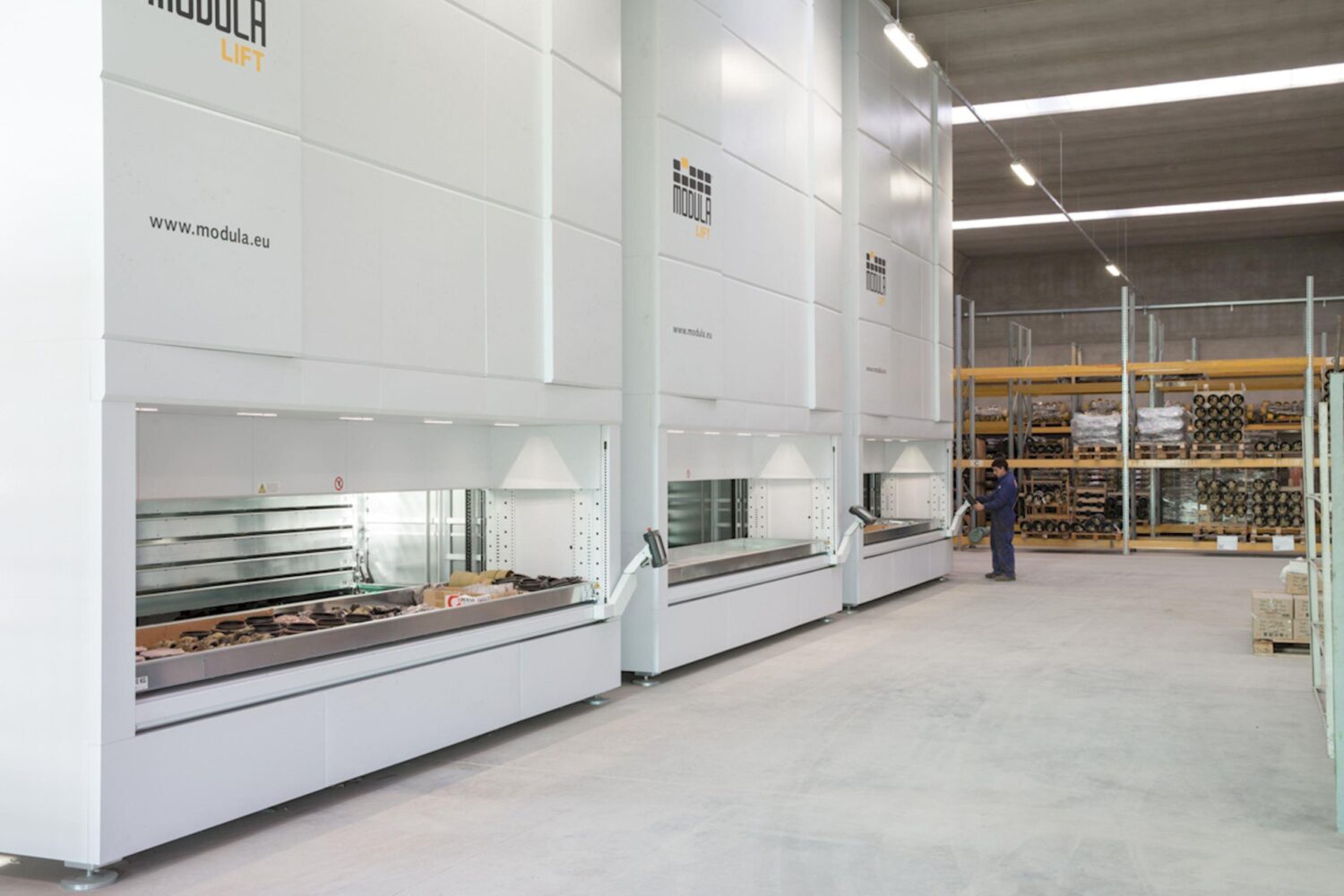Ford Motor Company Brings Automotive Manufacturing Parts to Production Lines with Automated System
Case Summary
Engine production keeps rolling with 3 Modula VLMs integrated into automated systems for efficient auto parts storage
Ford Motor Company’s vehicle assembly plant in Almussafes, Spain, boosted its productivity dramatically by investing $2.6 billion in automation. But the car manufacturer needed a better storage solution and way to manage the flow of engine parts when the production lines were temporarily halted. Ford acquired three Modula vertical lift modules, equipped with robotic assists, to provide a storage buffer so the flow continued as needed. Now the Spanish plant can produce more than 74,000 engines a month for vehicles sold in the European market.
The Challenge
Car manufacturing production disruptions when part components in storage were unavailable
The Spanish automaker operates around the clock to produce vehicles, relying on a complex automation system to do so. To keep up the pace, parts would need to be available at each step of assembly. Any single interruption to production lines or processes can cause the entire manufacturing process to come to a halt. These delays directly impact the number of vehicles produced in a day.
The Solution
Three Modula VLMs integrated into car manufacturer production to manage parts delivery and storage
Ford acquired three Modula vertical lift modules to complement the automated systems already at work in the Spanish assembly plant. Installed downstream of Ford’s production lines, the VLM units store and deliver parts as needed during the manufacturing process. If the production line stalls, a Modula unit sets the parts aside for later retrieval once the line is running again.
Integrated anthropomorphic robot arms handle the engine parts, allowing the factory to run on a six-day-a-week continuous cycle and produce 17,250 engines a week. The Modula VLMs are connected to the factory’s ERP system through its warehouse management system (WMS) solution. In addition to the efficiencies gained through the automated process, Ford was able to save on floor space as the VLMs took advantage of the plant’s high ceilings, with 260 engine blocks stored in 14 square meters. In a facility where automation plays a primary role, Modula’s VLM storage capacity and effective parts delivery augmented the plant’s operational efficiency.
